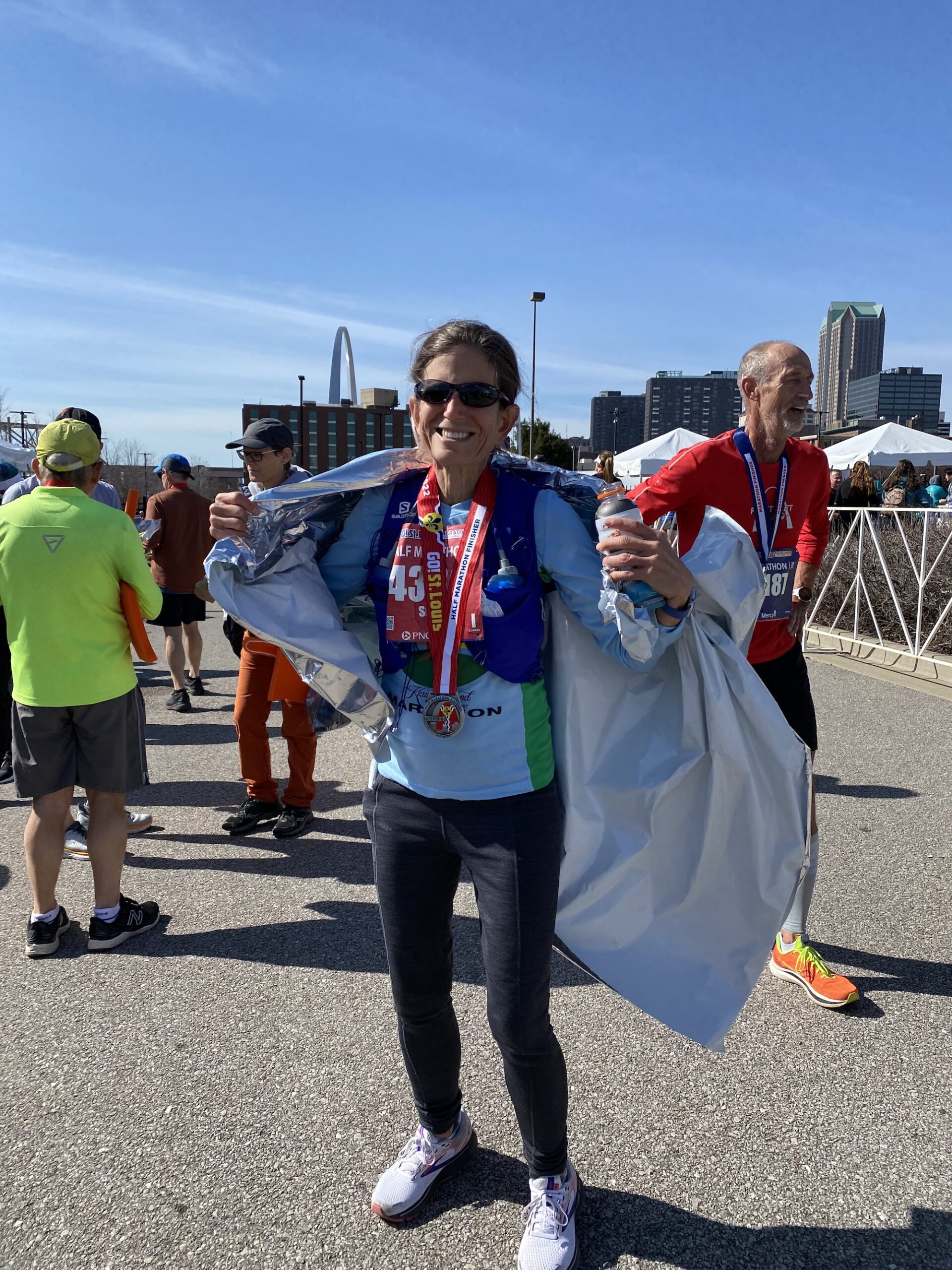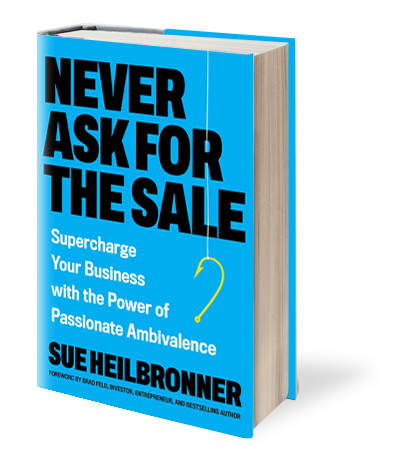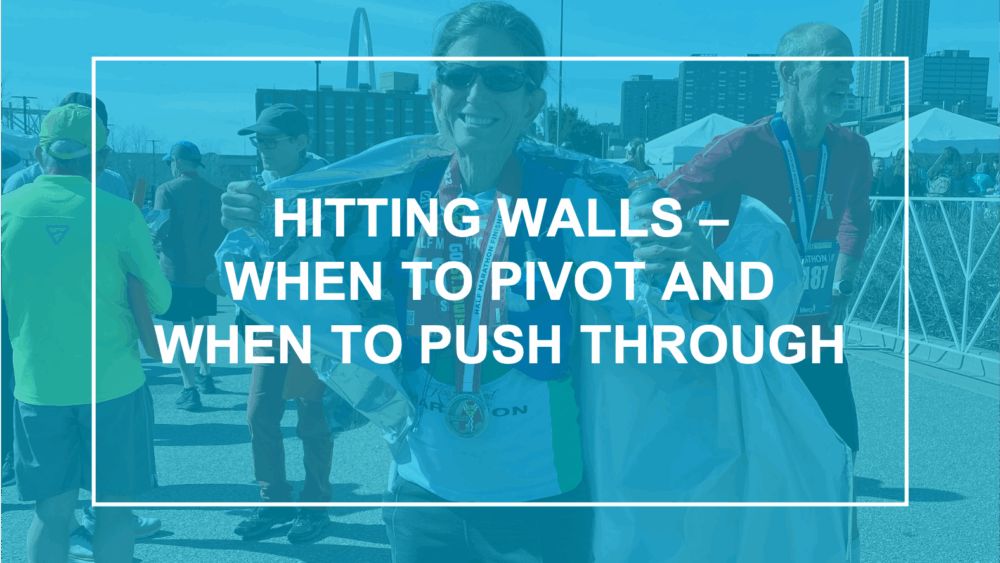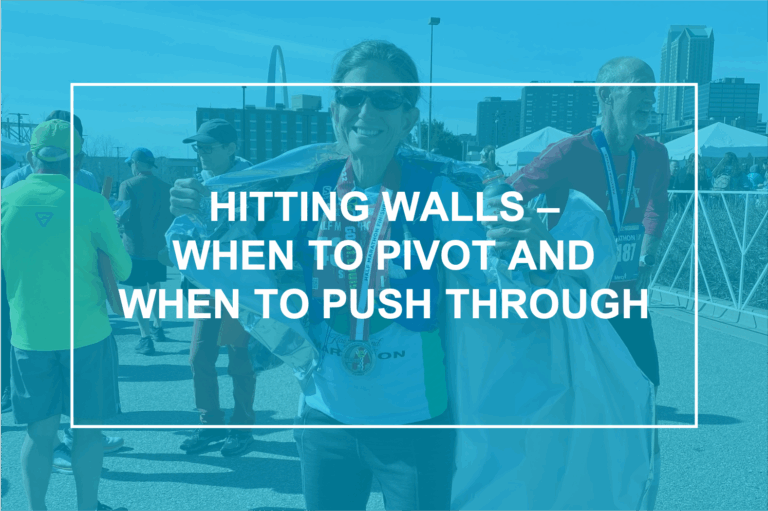Hitting Walls – When to Pivot and When to Push Through
My first day of law school at Duke began with an all-class meeting in a lecture hall. I remember walking into that room and being certain that these people were supposed to be there. I was accepted relatively late in the cycle, surely a slot vacated by someone who turned Duke down for Harvard. I felt “lucky” to be at Duke. I felt like an underdog.
And then I noticed that almost everyone had a little stack of books in front of them. Huh? This was an orientation. And what were these books? Because I’ve never been too overwhelmed by imposter syndrome to admit my own naïveté, I asked someone. They were Hornbooks, summaries a la Cliff’s Notes of the first-year courses we were about to embark upon. The person I asked had already read all of these books in preparation for the much-feared first year of law school. I didn’t even know these books existed.
I can still touch the wave of fear that washed over me. This proved I didn’t belong. My still-persistent habit of not preparing was at last going to get the best of me. This was it. I should have said yes to a lesser law school to give myself a chance of success. I was hitting my wall.
It didn’t play out that way. I sat in the first few rows of every class for three years. I asked a lot of questions and tossed out thoughts even when I was afraid. I worked my ass off. The law structurally made sense to me. I loved law school. Duke basketball won a national championship in that range, and I was at every home game (and many away games). Even the football team was great under then-Coach Spurrier. My grades were good enough in that all-important first year that I was invited to join the Duke Law Journal. I earned a coveted federal appellate clerkship. I was a shiny law grad who had checked all the right boxes (including receiving a declination from Justice Scalia for a Supreme Court Clerkship addressed to Mr. Heilbronner), and all of the “right” doors were open.
When it came time to choose a real lawyer job, I turned down a sexy entertainment firm in LA (undue parental influence that I’ll discuss some other day) and chose a seriously vaunted appellate firm in DC. This firm handled many cases in the Supreme Court. For people who knew, they knew what a big deal this place was. Almost every lawyer at the firm graduated from Harvard Law School.
I didn’t see it coming. It was a slow drip. But that job. That was my very first wall. Some people poo poo the actual correlation between school name/acceptance and intelligence. I don’t. Those kids out of Harvard (my age and more senior) were brilliant. Appellate lawyering — even after performing reasonably well in my clerkship — was complex and challenging. I recall meetings with colleagues where I felt like I couldn’t keep up with the threads of the conversation. I don’t know if I wasn’t intelligent enough or if I just wasn’t well-suited for erudite appellate practice, but I wasn’t good enough. I knew it. They also hinted at this one year in.
I didn’t fight it. I didn’t try harder to prove anything to anyone. Somehow I knew it wasn’t a fit, whether by talent or interest or both. I wanted to be a government trial lawyer, and I knew a law firm was a stepping stone to my real goal of being a prosecutor, but I never expected to be in a position of having to make a different choice before I got my dream job.
I did a slew of interviews and got a job at a more typical firm. I did white-collar criminal defense to better position myself for the Department of Justice (yes, that’s ironic but true). I seemed smart enough again in that new context. Twenty years later, I saw many of my colleagues go on to roles in the Obama administration, which made me value that administration even more. And I eventually secured my role as a DOJ trial attorney, a job at which I excelled. A job I loved.
I pivoted. I knew. It was painful. It was right. It all worked out beautifully.
This week I hit another wall.

Since meeting my brilliant, creative, funny, and hyper-athletic significant other, I have been running half marathons on days he runs marathons. I’ve run four in the last five months. I don’t really “run.” It’s more of a jogging thing. I don’t train. I’m fit enough. Or so I thought. I thought this because I have finished all four. I have run most of the time. My times are slow, but they’re presentable for someone just trying to do the thing to be social and have something to do. My goal has been to beat my man while he runs a full marathon, and I’ve done that handily.
The hitch is that I’m fiercely competitive. I go out there with a slew of people who are trained, and I have a hard time stopping for walking breaks or hydration breaks. I can keep running, and so I do. Or so I have.
Until I came to terms this week with the fact that each time I’ve run, even with intentional improvements to my pre-race routine and my hydration protocol, I’ve ended up cramping badly 15 minute after the finish line. Once I needed IV fluids to get past the pain. That time, I could feel some weird strain in my back. If you’ve read enough of these, you may know I have Polycystic Kidney Disease (PKD), and I thought I might have over-taxed my kidneys. Talk about a long-term compromise for a short-term Pyrrhic victory. Not. Good.
I went to the doctor for a physical this week. Like most of us and our medical habits during COVID, it had been three years. She was adamant. No more endurance running without actual conditioning. No running at all where my heart rate is over 150 (in these races, it is in the mid-160s and tops at 170).
Sue. Meet. Wall.
I feel sad. Heartbroken really. I have come to love these races. I am proud of completing them. I’m actually almost decent at them all things considered. I can see I could be way better. There is training, conditioning, even better hydration.
I will try some of that. And I will never let myself knowingly exercise at 170 BPM again. I will wear technology that makes me honor this ceiling.
This is an invitation, rather an order, to surrender. And I am kicking and screaming some, but not enough to raise my heart rate. I am fine. I have all of the perspective that I should have around the context for this disappointment.
And it still sucks to admit that I probably can’t do a thing.
Rats.


